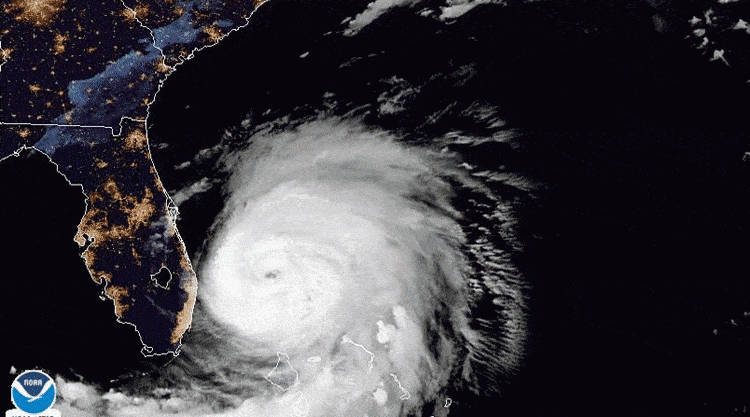Preparing for Hurricane Milton

Hurricanes In Our Region
Hurricanes in the North Atlantic Ocean region are powerful tropical storms that can cause significant damage, particularly along coastlines. Florida, due to its geographic location, is highly vulnerable to hurricanes, which can bring strong winds, heavy rainfall, and storm surges, leading to flooding and property damage. In recent years, Florida has experienced several impactful hurricanes, including Hurricane Ian in 2022, which caused extensive damage and disruptions. For the current year, forecasters have predicted an above-average hurricane season, with particular concern for storms forming in the Gulf of Mexico and the Atlantic. As always, residents are advised to stay informed and prepared for potential evacuations or other safety measures.
Hurricanes in the North Atlantic Ocean, especially in Florida, can be extremely dangerous, bringing destructive winds, heavy rainfall, and life-threatening storm surges. As a hurricane approaches, you can expect worsening weather conditions, including increasing winds, torrential rain, and rough seas. News updates will frequently provide information on the storm's path, intensity, and necessary precautions. It's important to follow evacuation orders, secure your property, stock up on essentials, and stay informed through reliable news sources. Preparing an emergency kit and having a plan in place can significantly enhance your safety during a hurricane.
Before A Hurricane
Before a hurricane, it's essential to prepare thoroughly. Secure your home by installing shutters or boarding up windows and securing doors. Create an emergency kit with water, non-perishable food, medications, and essential documents. Plan for evacuation if needed, knowing your route and destination. Also, make arrangements for pets, and ensure your car's gas tank is full. Stay informed through official news sources and follow local authorities' instructions for safety. For more detailed information, visit the Miami-Dade County hurricane preparedness page.
During A Hurricane
During a hurricane, stay indoors and away from windows to avoid flying debris. If you're in a flood-prone area, move to higher ground or the highest level of your home. Listen to weather updates and emergency instructions through a battery-powered radio or smartphone. Avoid using candles, as they pose a fire risk; use flashlights instead. Do not go outside until authorities confirm it is safe, even if it seems calm, as the storm's eye can give a false sense of security.For more details, visit the Miami-Dade County hurricane preparedness page.
After A Hurricane
After a hurricane, prioritize safety and recovery. Avoid standing water, as it may hide hazards and carry contaminants. Be cautious of downed power lines and report them to the utility company. If returning home, inspect for structural damage and check for gas leaks. Use flashlights instead of candles to prevent fire hazards. Follow local authorities' advice regarding curfews and boil water notices if water quality is compromised. For debris removal, use brooms instead of hoses and place debris away from storm drains (Miami-Dade County) (Miami-Dade County)

Hurricane Categories

A Category 1 hurricane typically causes minor damage, with winds between 74-95 mph. In Florida, this can result in damage to unanchored mobile homes, tree branches breaking, and power outages. Coastal flooding and minor roof and siding damage are also common. Floridians should prepare for power outages, secure outdoor objects, and stay informed through local news and weather updates as the storm approaches.

A Category 2 hurricane, with winds between 96-110 mph, can cause significant damage. In Florida, such storms often lead to major roof and siding damage, uprooted trees, and extensive power outages. Coastal areas may experience flooding and structural damage to poorly constructed buildings. Floridians should expect potential evacuation orders, secure their property, and prepare for extended power outages and water shortages (Miami-Dade County) (Miami-Dade County)

A Category 3 hurricane, with winds of 111-129 mph, can cause devastating damage. In Florida, such storms often lead to extensive roof and siding damage, snapped or uprooted trees, and widespread power outages. Coastal areas may face significant flooding and destruction to mobile homes and older structures. Floridians should expect mandatory evacuations in vulnerable areas, potential long-term power loss, and severe infrastructure damage (Miami-Dade County) (Miami-Dade County).

A Category 4 hurricane, with winds of 130-156 mph, can cause catastrophic damage. In Florida, these storms often lead to severe structural damage to buildings, with many roofs, walls, and windows destroyed. Large trees and power poles can be downed, leading to long-term power outages and widespread debris. Coastal areas may experience devastating storm surges. Floridians should expect mandatory evacuations, prepare for prolonged power outages, and brace for significant damage (Miami-Dade County) (Miami-Dade County).

A Category 5 hurricane, with winds exceeding 157 mph, causes catastrophic damage. In Florida, such storms can lead to total roof failure, wall collapse, and widespread destruction of homes and businesses. Most trees are snapped or uprooted, and power outages can last for weeks. Coastal areas face life-threatening storm surges and severe flooding. Floridians should expect mandatory evacuations, prepare for extensive property damage, and possible long-term displacement (Miami-Dade County) (Miami-Dade County).